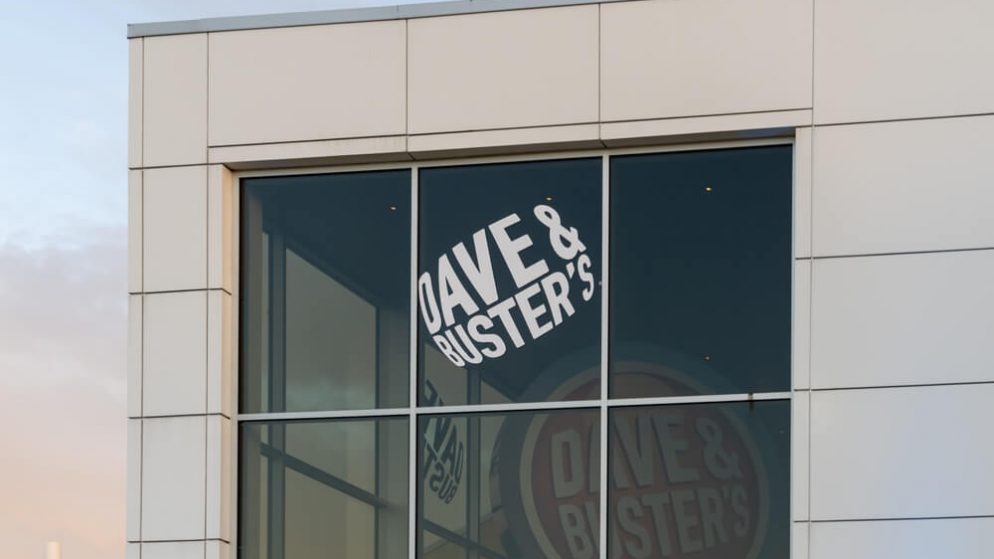

In a surprising turn of events, arcade giant Dave & Buster’s has decided to venture into the realm of social wagering. Dave & Buster’s recently announced that it would be launching a brand-new app
As you can expect, this unexpected move has raised eyebrows and sparked curiosity among both gaming enthusiasts and industry experts alike. After all, Dave & Buster’s is primarily known for its family-friendly entertainment, featuring an array of arcade games, sports viewing experiences, and delicious dining options.
What we cover
So, why would it choose to dip its toes into the world of gambling?
At first glance, the idea of social wagering at Dave & Buster’s may seem out of place. As we’ve mentioned above, traditionally, the brand has always catered to families, offering a wholesome environment for fun and recreation.
However, upon closer examination, it becomes clear that this move is not as far-fetched as it may initially appear. One of the key factors driving Dave & Buster’s decision to introduce social wagering is the growing popularity of gambling activities among consumers.
Over the last couple of years, there has been a notable surge in interest in various forms of gambling, including sports betting, online casinos, and social gaming platforms. With more people seeking out opportunities to engage in gambling activities, Dave & Buster’s saw an opportunity to tap into this burgeoning market.
By incorporating social wagering into its app, Dave & Buster’s is looking to boost the overall experience for its customers, providing them with a new and exciting way to interact with the brand. Through the app, users can enjoy a range of social games and challenges while competing against friends and fellow players.
Whether it’s placing friendly bets on arcade competitions or participating in virtual tournaments, the platform offers a fresh and innovative take on traditional gaming. Plus, by embracing social wagering, Dave & Buster’s can attract a broader audience, including young adults and millennials who are drawn to the excitement of gambling.
This demographic represents a significant portion of the consumer base for gaming and entertainment venues, and by catering to their interests, Dave & Buster’s can strengthen its appeal and drive customer engagement.
Additionally, social wagering provides an opportunity for Dave & Buster’s to generate additional revenue streams and increase customer spending. By offering virtual currency and in-app purchases, the company can monetize the gaming experience while providing its users with incentives to participate and compete.
Overall, while Dave & Buster’s may seem like an unlikely candidate for social wagering, the move reflects the brand’s adaptability and willingness to innovate in response to evolving consumer trends.
By embracing this new frontier, Dave & Buster’s is poised to carve out a unique niche in the competitive gaming and entertainment landscape, offering customers a one-of-a-kind experience that combines the thrill of gambling with the excitement of arcade gaming.
Unfortunately, lawmakers aren’t amused by this decision
Dave & Buster’s recent announcement to allow adult rewards customers to bet against each other in its arcades has stirred up a lot of controversy and raised concerns among lawmakers and regulators. While the move may have been intended to enhance the gaming experience for customers, it has sparked a debate over the potential risks and implications associated with social wagering in arcade settings.
One of the primary concerns voiced by lawmakers and regulators is the potential for social wagering to encourage gambling behavior among vulnerable individuals, particularly young adults and adolescents.
Arcade environments are often frequented by families and young people, and the introduction of betting elements could normalize gambling activities and contribute to problem gambling behavior.
Furthermore, there are concerns about the lack of regulation and oversight surrounding social wagering in arcade settings. Unlike traditional gambling establishments such as casinos and sportsbooks, arcades may not be subject to the same strict regulations and consumer protections.
This raises questions about the adequacy of measures to prevent underage gambling, ensure fair play, and address potential issues related to problem gambling. In addition to regulatory concerns, there are also ethical considerations surrounding the introduction of social wagering in family-oriented entertainment venues like Dave & Buster’s.
Many argue that arcades should remain safe and inclusive spaces for all ages, free from the influence of gambling-related activities. Introducing betting elements could compromise the integrity of the arcade experience while also alienating certain groups of the customer base.
To this effect, Illinois Representative Dan Didech, serving as chairman of the House gaming committee, recently introduced the “Family Wagering Prohibition Act” on May 2nd. This proposed legislation aims to prohibit “family amusement establishments” like Dave & Buster’s from enabling wagering on their games, as well as banning the advertisement of such activities.
With 36 co-sponsors backing the bill, it has been referred to the rule committee for further consideration. Although the bill is currently awaiting a hearing date in the rule committee, it’s worth noting that the deadline for introducing bills in the House was February 9th, with the crossover deadline set for April 19th.
However, exceptions are often made for unique situations, and the fate of the “Family Wagering Prohibition Act” remains uncertain as legislators continue to deliberate its potential impact and implications for family-oriented entertainment establishments.
The Ohio Casino Control Commission has also initiated an investigation into the matter and expressed concerns to the media, stating that the concept “seems to contravene Ohio law.” Ohio, alongside Massachusetts, boasts stringent regulations regarding gambling, advertising, and the involvement of minors.
Amidst these concerns, Dave & Buster’s and other arcade operators must prioritize responsible gaming practices and implement robust safeguards to mitigate potential risks.
This may include age verification measures, limits on betting amounts, and resources for addressing problem gambling issues. Collaboration with regulators, advocacy groups, and other stakeholders will also be essential in ensuring that social wagering initiatives are implemented responsibly and ethically.
Final Thoughts
Ultimately, the debate surrounding social wagering in arcade settings highlights the need for careful consideration of the potential impacts and consequences. While modernization and adaptation are essential for businesses to stay competitive, it is equally important to prioritize consumer protection and social responsibility. By striking a balance between innovation and accountability, arcade operators can create an enjoyable and safe gaming environment for all patrons.

